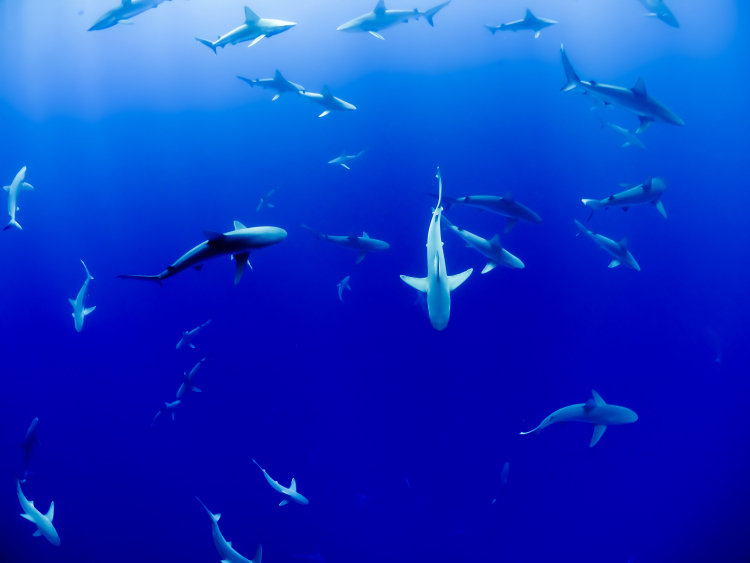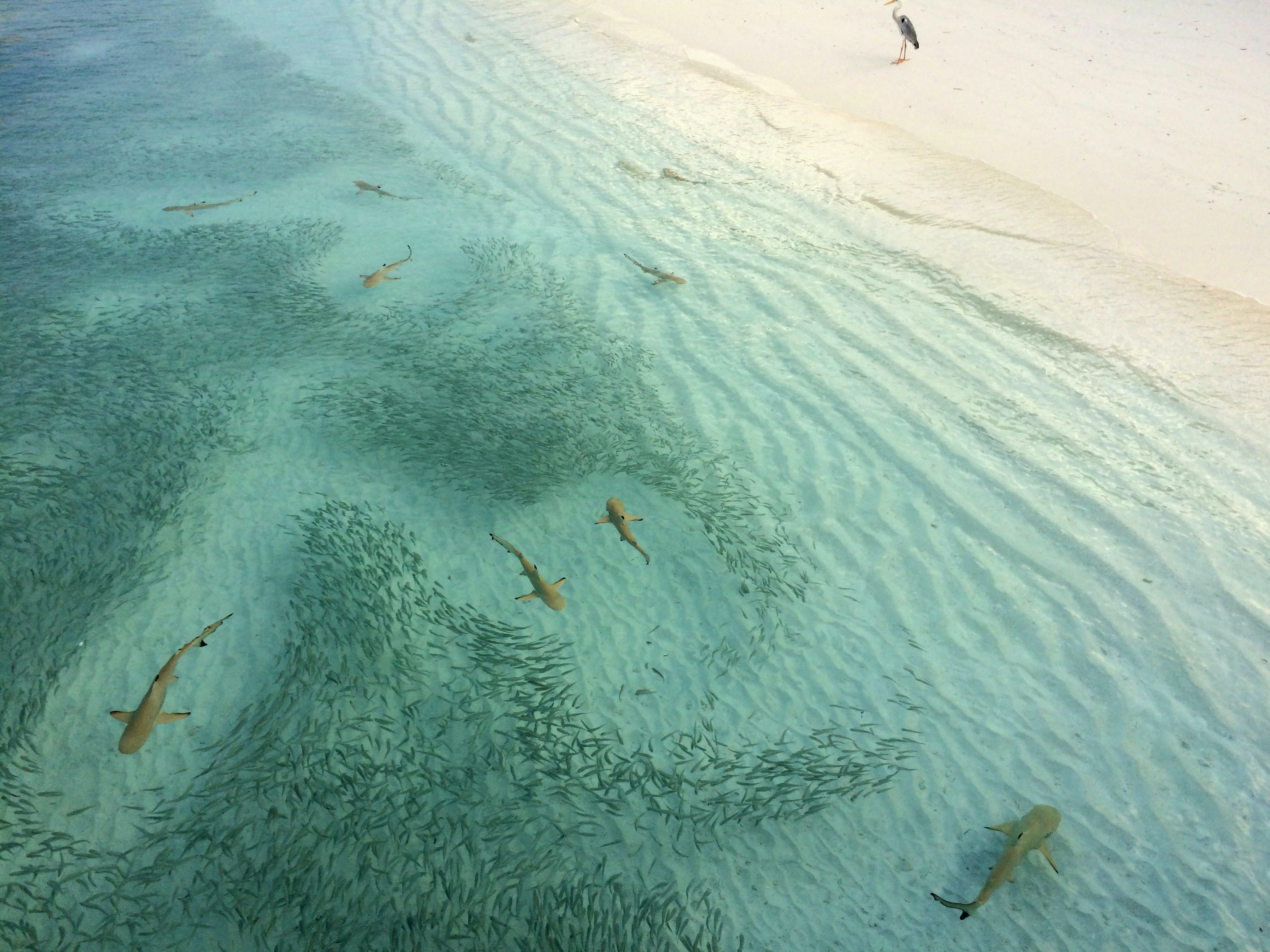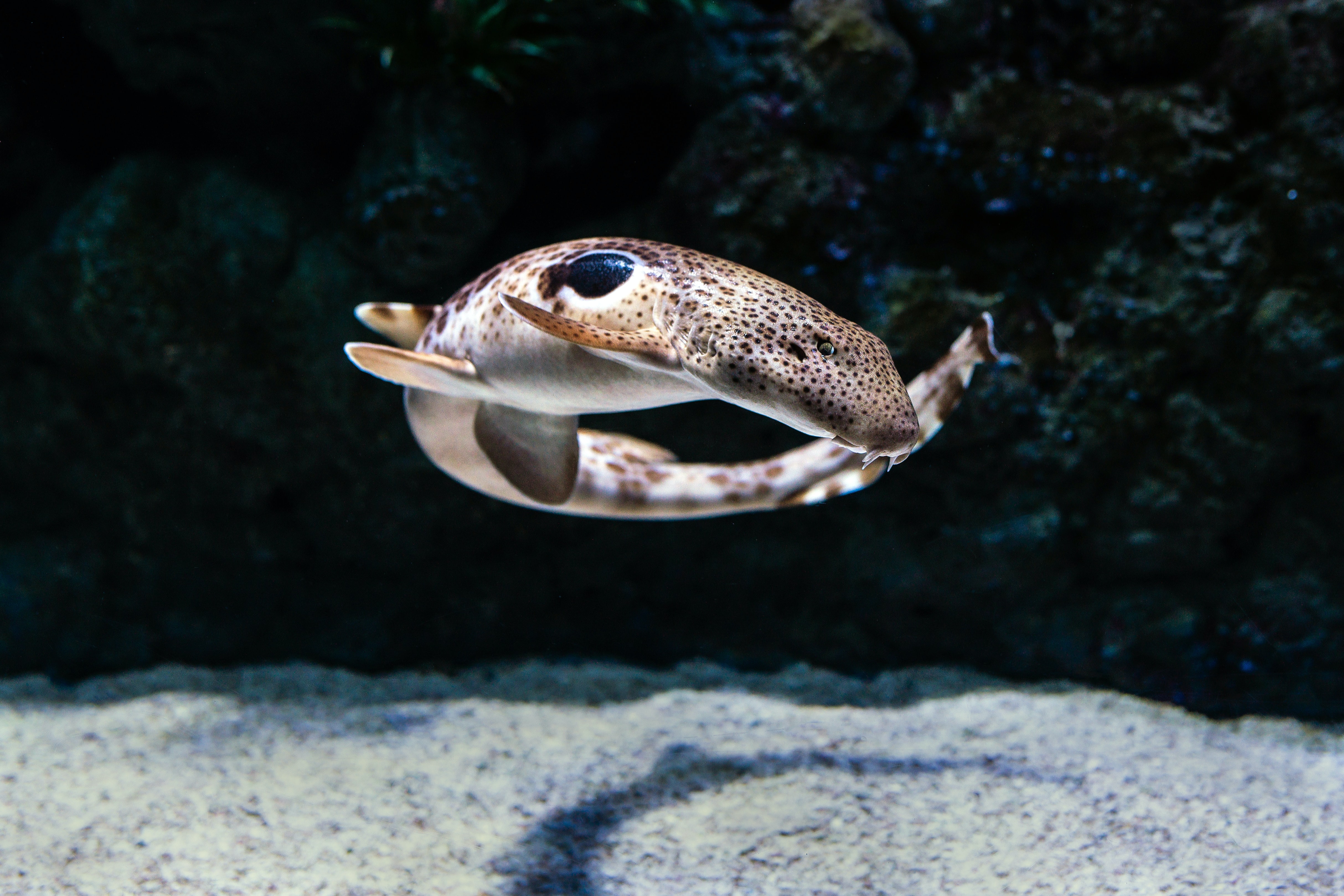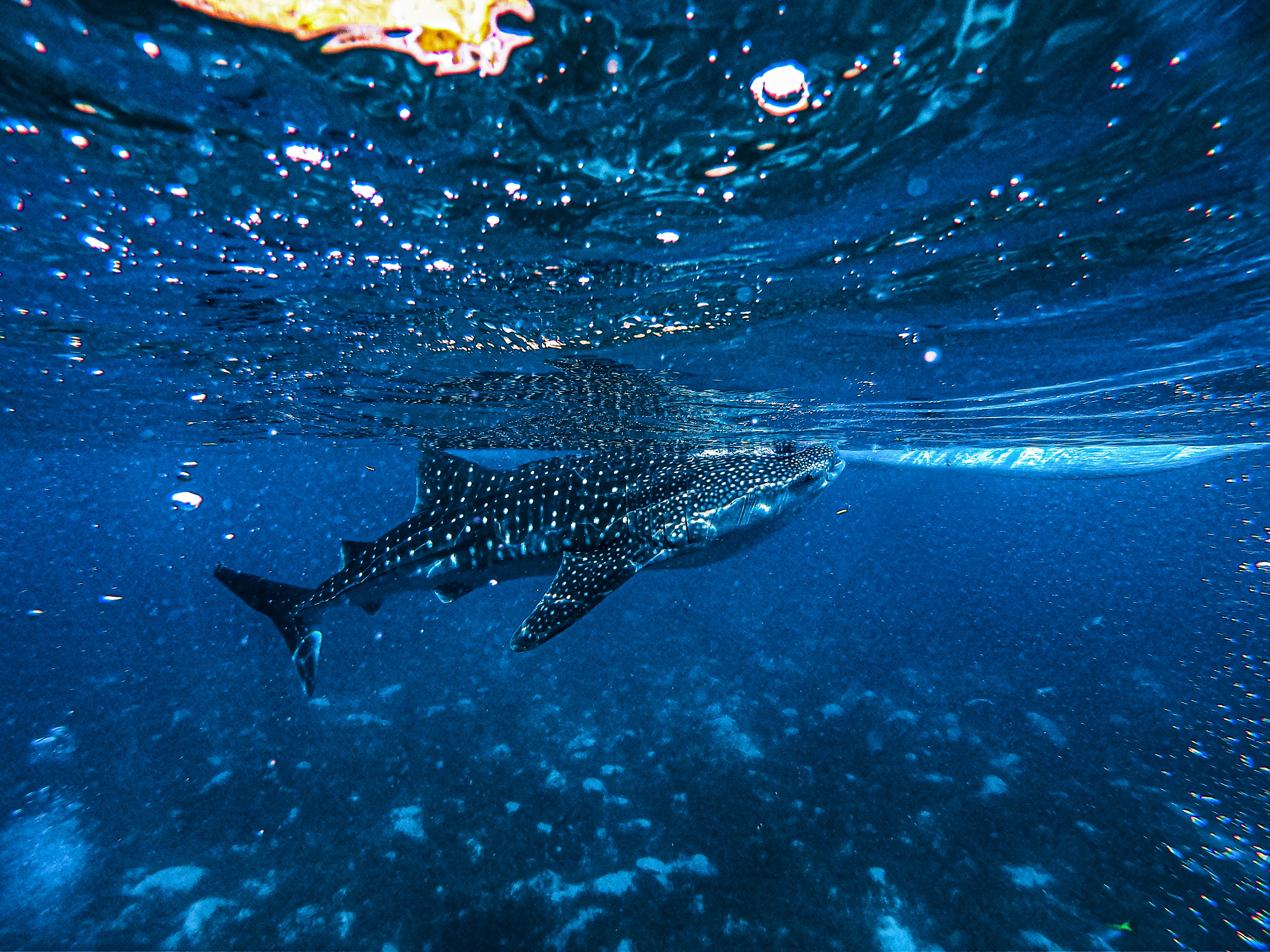Helpers from the Deep

“Sharks are the lions of the sea. They glamorize the oceanic glory.” — Munia Khan
Once upon a time, there was a world where humans and the wild lived in harmony, listening to the basic laws of ecology; but today men occupy almost every environment on Earth. As a consequence, ecosystems are impacted the natural balance disrupted.
Oceans seem infinite and eternal. This illusion, drawn by mother nature, actually hides a different truth. In fact, the marine world is animated by vulnerable creatures and oceans represent complex ecosystems where every single species plays an essential role for the survival of the others. These invisible connections allow for an exceptional harmony in oceans and seas; a lively kingdom.
Sharks remain one of the most mysterious and amazing species of marine life. Their discrete lives carry the important responsibility of holding the underwater world in balance. Nevertheless, all that people hear about sharks is how dangerous they are.
Photo credit: Ibrahim Rifath/Unsplash
Since childhood, stories and movies represent sharks as dangerous, violent, and brutal characters with fierce traits. It influences people to look at sharks with anxiety and repulsion. In other words, these marine animals are often, if not always, pictured with negative aspects of human nature and are defined as a threat; as an enemy.
These wrong stereotypes spread throughout society with the help of the media. As a result, humans are taught to fear sharks.
Sharks embody a curious paradox. These wild marine animals we fear the most are also the ones we cannot live without. According to Erich Ritter, a marine biologist who specializes in sharks, the predators of the sea are essential regulators of the oceans which maintain the balance in entire marine ecosystems.
For example, by feeding on sick prey, which are weaker and easier to catch, apex predators actually prevent diseases to spread to a larger population. They also adopt a scavenger behavior by cleaning up the oceans from carrions.
Another remarkable effect of sharks in aquatic ecosystems remains their ability to shape the oceans. To be more specific, these top marine predators permit the evolution of their prey. Speed, camouflage, communication and size are all schooling behaviors explained and influenced by the presence of sharks in the oceans.
Photo credit: David Clode/Unsplash
Sharks participate in natural symbiosis with other aquatic animals. There is an ecological migration, believed by scientists to be motivated by reproduction matters, called the ‘sardine run’. The sardine run refers to seasonal movements of fish and predators. During this specific period of time sharks, dolphins, seals, and whales hunt together.
These marine species actually work together in order to make the hunt lucrative for all. With shoals of tiny fish driven to the surface, sea birds also join the feast. It has been proven that sea birds depend on marine predators, such as sharks, to survive.
Sharks also protect coral reefs by regulating the population of fish below them on the food chain. In other words, without sharks the population of specific trophic levels would explode in number and take over. As a result, the primary producers such as coral reefs and aquatic plants, which remain habitats for various marine species, would be targeted and decimated by the primary consumers.
The cascade effect caused by an absence of sharks in the oceans doesn’t end there. Indeed, populations of jellyfish and algae would overpopulate. Consequently, coral reefs would disappear as well as the different species they shelter, such as shellfish and crustaceans.
The sharks’ presence in the oceans has provided a framework for the population below them on the food chain, including phytoplankton. Phytoplankton are tiny aquatic organisms which consume more carbon dioxide than anything else on earth.
Carbon dioxide is the gas responsible for global warming and which plankton have the power to turn into oxygen. These microscopic marine organisms provide 70% of the oxygen we actually breathe on land. Without sharks to prey on them, plankton feeders, below sharks on the food chain, could grow out of control and drive their prey to extinction.
Above all, life on land depends on life in the oceans. Sharks regulate the oceans, shaping ecosystems to a natural harmony where every species coexists. For more than 400 million years, sharks have populated the oceans. In fact, they managed to survive five major extinction events. However, today sharks are facing a challenge they cannot overcome.
According to National Geographic, the world’s shark population is estimated to have declined by 70% since 1970. For the first time in 400 million years, sharks became prey.
Photo credit: Naja Bertolt Jensen/Unsplash
The fishing industry is the most prevalent cause of the decline of shark population.
In some Asian countries, predominantly in China, shark fin soups are held as a status symbol, as there is a belief that, because sharks are resilient to some parasites and don’t get sick as often as people do, eating a shark's cartilage broth would transfer this precious power to the one who consumes it. Some companies have even capitalized on the sharks’ resilience to disease, marketing shark fins as a cancer treatment. Nevertheless, there is no scientific background to this at all. In fact, it has been proven that eating shark fins does nothing to cure diseases. On the contrary, sharks are so contaminated with mercury and other pollutants that eating shark products is more likely to cause disease than efficiently cure someone.
Sharks are oftentimes victims of long line fishing. Long-lining refers to a fishing method that involves setting out a large number of short lines carrying hooks, which are attached to a longer main line, at regular intervals. Other methods of fishing, such as bottom trawling, provoke a phenomenon called ‘bycatch’, which is responsible for the death of over 50 million sharks a year. Bycatch refers to marine species which were unintentionally caught due to a direct encounter with fishing vessels and gear. These methods threaten the healthy balance of marine ecosystems and highlight the dramatic impacts of the fishing industry.
The example of sharks enhances well the power of influences and preexisting ideas spread by societies. For the single reason that sharks remain considered as fierce and dangerous, these marine animals are decimated to the point of being on the brink of extinction; all in a public silence.
Photo credit: Jeremiah Del Mar/Unsplash
Humans have much to learn from sharks. They show an incredible adaptation as well as remarkable evolution over time to overcome several challenges. Individuals could be inspired by sharks to understand ecosystems better as well as learning how to coexist, in a natural harmony, with the tremendous frame of living organisms with whom we share our environment.
I believe that building walls of ignorance between us and the wild does not contribute to helping humans find a home in this universe. The wild carries the precious essence which could teach us to feel that we are actually part of this place, and not ephemeral visitors.
Marine ecosystems have the magical capacity to bounce back; there is still some hope. After all, without hope to balance the sorrow, and benevolent actions to fix mistaken behaviors, this world cannot dream to have a bright future. ‘It always starts with someone, some one’.











